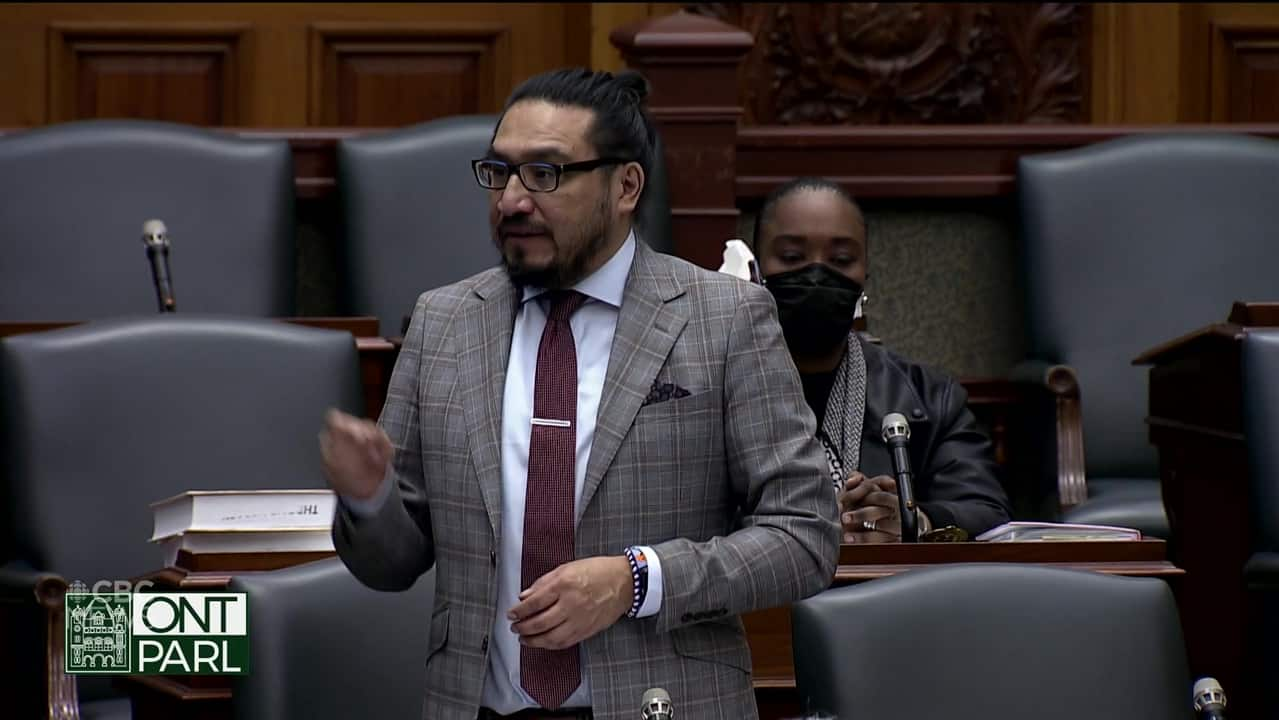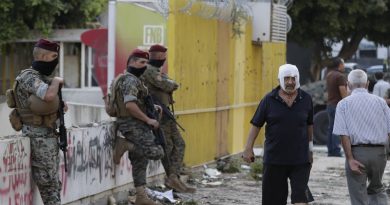Thunder Bay police oversight board strikes expert panel as investigations, complaints mount
The Thunder Bay Police Services Board has voted to strike an expert panel to advise its response to a series of human rights complaints filed against the service and the board — and to a number of other challenges facing the two bodies.
The decision to form a panel was made at a meeting Wednesday morning, and is subject to the board’s approval of a work plan for it.
The move comes as the Thunder Bay Police Service (TBPS) in northwestern Ontario and its oversight board face a number of human rights complaints, external investigations and scrutiny from provincial police and oversight bodies. On Tuesday, a leaked report recommended that 14 sudden deaths involving Indigenous people from 2006 and 2019 should be reinvestigated.
“I think it’s very well documented that we certainly have some challenges within this board,” chair Kristen Oliver, who proposed the panel, said in the meeting. “I also understand that there’s work to be done, especially to shore up confidence in the service and the board.”
The panel would help the board accomplish its strategic plan by reviewing policies, procedures, training and “practices related to concerns about human rights and mental health issues,” Oliver said.
It would also review progress on recommendations from two reports that found systemic racism in the force and on the board — the Broken Trust report by the Office of the Independent Police Review Director (OIPRD) and the Ontario Civilian Police Commissioner (OCPC) — and it would generate new recommendations for the board.
- WATCH | NDP MPP Sol Mamakwa raises this issue of OPP oversight of Thunder Bay Police in Queen’s Park
Ontario NDP MPP Sol Mamawka spoke about the findings of systemic racism within the police force in Thunder Bay, Ont., and is asking the government for an inquest and Ontario Provincial Police oversight of the police service. Here’s his exchange in Queen’s Park with Solicitor General Sylvia Jones. 3:58
The proposed chair of the expert panel is Alok Mukherjee, former chair of the Toronto Police Services Board.
Other proposed panel members named in a memo to the board from secretary John Hamman include:
- Kimberly Murray, former executive director of the Truth and Reconciliation Commission.
- Laura Kloosterman, executive director of the Badge of Life Secretariat, which helps safety personnel deal with operational injuries.
- Max Baxter, president of the Police Association of Ontario.
- Paul Cook, former North Bay, Ont., police chief.
So far, only Mukherjee has confirmed to CBC News his willingness to participate in the panel.
His comments in the media criticizing the work of the board were part of the impetus for proposing the panel, Oliver told the meeting.
Thunder Bay Mayor Bill Mauro, who is on the oversight board, told the meeting it felt “awkward’ to have the names of the proposed panel members made public before any consultation with board members had taken place.
“I think it puts us all in a bit of an awkward position if we had issues with any of the members who are being proposed here,” Mauro said. “I’m not passing judgment on any of the members [whose] names are there. I would just make the comment that, in the future, it would be nice if maybe we could’ve all maybe had a bit of input.”
Mauro also requested an amendment to the motion to strike the panel, which would require the board to approve a work plan before moving forward.
That amendment was passed.
There was little other debate on the measure at the meeting, which lasted less than 20 minutes.
However, some Indigenous leaders have expressed concerns to CBC News about how valuable this panel would be, considering there have been previous studies and reports.
“The reports are just going to pile on top of one another,” said Deputy Regional Grand Chief Melvin Hardy, who speaks for the northern superior region with the Anishinabek Nation. “This is smoke and mirrors, and not actually action.”
If the panel is to go forward though, Hardy called for it to be Indigenous led.
‘We haven’t seen any change yet’
Nishnawbe Aski Nation Deputy Grand Chief Anna Betty Achneepineskum echoed Hardy’s concerns that the board needs to take action rather than just request more reports.
“We have not seen any change yet,” she said.
“They have been provided with [the] opportunity and also to engage with the First Nation citizens of the city to ensure that we move forward in a very respectful way. And it hasn’t happened yet. I don’t have any faith. And I question their recommendation.”

Board member Georjann Morriseau, a former chief of the Ojibway First Nation of Fort William, questions the panel too. She’s one of nine people to file a human rights complaint against the police service, the police services board and police Chief Sylvie Hauth.
“I think that we’re at a juncture right now where there are actions [that] need to be taken. And I still see that those actions haven’t yet [been] carried out in a manner that I think is in the best interest of the community or the service at large,” said Morriseau, who was not at the Wednesday meeting.
Morriseau repeated her call for the current board to be disbanded, saying, “I don’t think that the appropriate individuals or bodies are in place right now to be able to deliver on meaningful change and action that is impartial and unbiased.”


